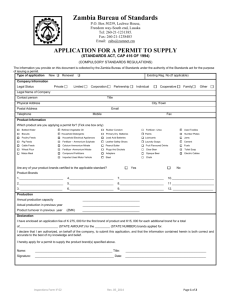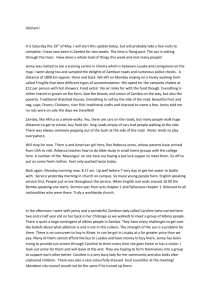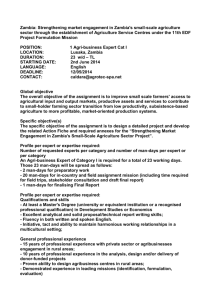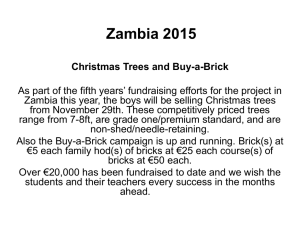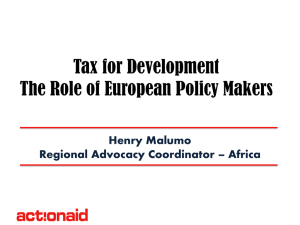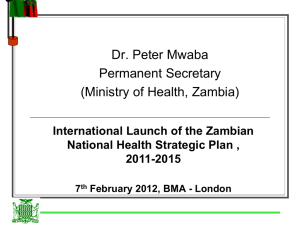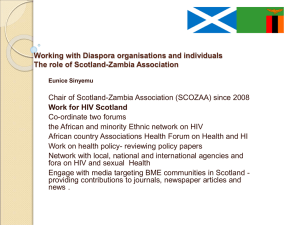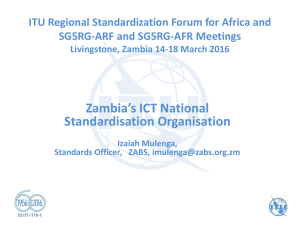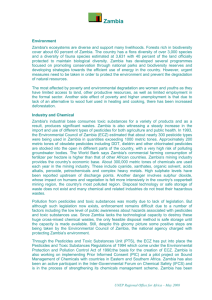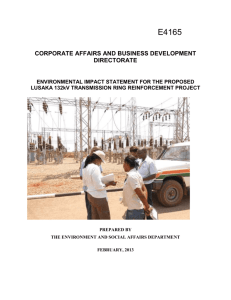Zambia Trained on Good Standards Practice Referencing Standards
advertisement
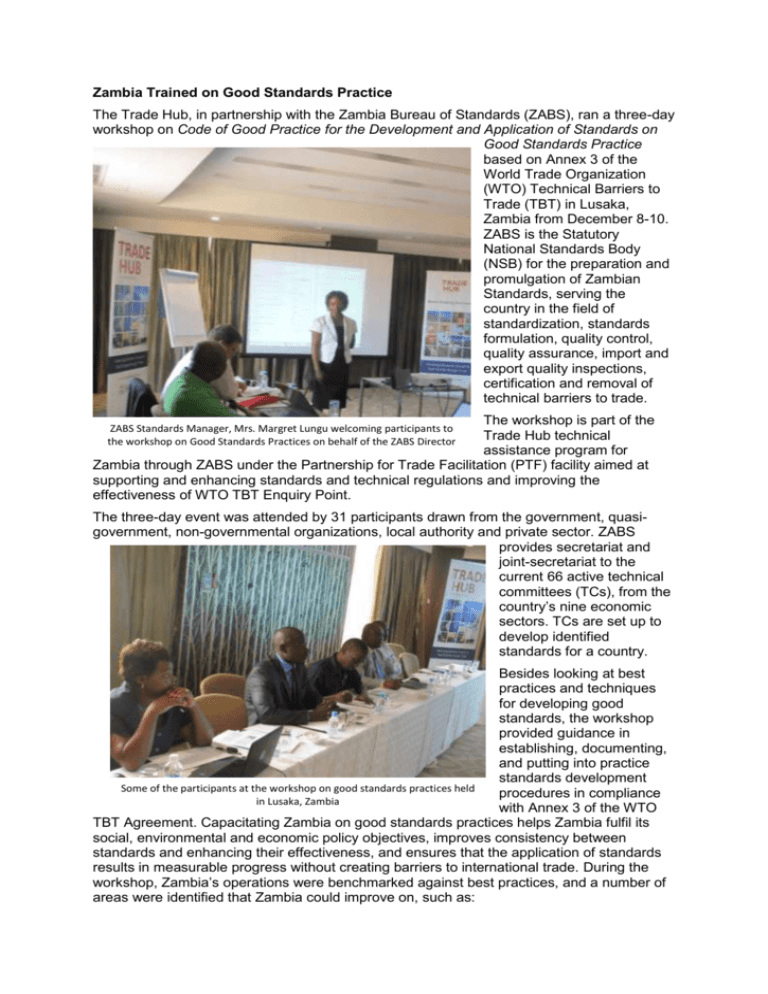
Zambia Trained on Good Standards Practice The Trade Hub, in partnership with the Zambia Bureau of Standards (ZABS), ran a three-day workshop on Code of Good Practice for the Development and Application of Standards on Good Standards Practice based on Annex 3 of the World Trade Organization (WTO) Technical Barriers to Trade (TBT) in Lusaka, Zambia from December 8-10. ZABS is the Statutory National Standards Body (NSB) for the preparation and promulgation of Zambian Standards, serving the country in the field of standardization, standards formulation, quality control, quality assurance, import and export quality inspections, certification and removal of technical barriers to trade. The workshop is part of the Trade Hub technical assistance program for Zambia through ZABS under the Partnership for Trade Facilitation (PTF) facility aimed at supporting and enhancing standards and technical regulations and improving the effectiveness of WTO TBT Enquiry Point. ZABS Standards Manager, Mrs. Margret Lungu welcoming participants to the workshop on Good Standards Practices on behalf of the ZABS Director The three-day event was attended by 31 participants drawn from the government, quasigovernment, non-governmental organizations, local authority and private sector. ZABS provides secretariat and joint-secretariat to the current 66 active technical committees (TCs), from the country’s nine economic sectors. TCs are set up to develop identified standards for a country. Besides looking at best practices and techniques for developing good standards, the workshop provided guidance in establishing, documenting, and putting into practice standards development Some of the participants at the workshop on good standards practices held procedures in compliance in Lusaka, Zambia with Annex 3 of the WTO TBT Agreement. Capacitating Zambia on good standards practices helps Zambia fulfil its social, environmental and economic policy objectives, improves consistency between standards and enhancing their effectiveness, and ensures that the application of standards results in measurable progress without creating barriers to international trade. During the workshop, Zambia’s operations were benchmarked against best practices, and a number of areas were identified that Zambia could improve on, such as: Stakeholder engagement, transparency, impartiality, and due process; Development of standards appeal process; and Gender integration in technical committees. A recommended priority list and possible actions were developed by the participants for implementation by ZABS. Zambia Trained on Referencing Standards in Regulations The Trade Hub, in partnership with the Zambia Bureau of Standards (ZABS), under the Partnership for Trade Facilitation (PTF) support, held two-day Guidelines on Referencing Standards in Technical Regulations workshop in Lusaka, Zambia from December 11-12. ZABS is the Statutory National Standards Body (NSB) for the preparation and promulgation of Zambian Standards, serving the country in the field of standardization, standards formulation, quality control, quality assurance, import and export quality inspections, certification and removal of technical barriers to trade. As part of the Standards Expert, Dr. Geoffrey Visser facilitating during a workshop on Trade Hub’s continued Guidelines on Referencing Standards in Technical Regulations in Lusaka, cooperation with the Zambia American National Standards Institute (ANSI) under the PTF Standards Alliance program, the material for the workshop contained inputs from US experts on standards. The workshop discussed the current regulatory environment, regulatory best practices, methods of using standards in technical regulations, conformity assessments in technical regulations and effectiveness of regulations in order to promote trade. Over 20 participants from regulatory agencies, government, quasigovernment and the local authority attended the workshop. The use of standards in regulation is an effective means of supporting national, regional and global policies, widely used globally. Regulators can include technical standards in a regulation either by making Dr. Visser stressing a point during the Guidelines on Referencing Standards own standards or use an in Technical Regulations a workshop in Lusaka existing technical standard. The latter saves costs and reduces delays associated with creating new standards, capitalizes on available expertise in the private sector, and is easier to enforce. Using available standards provides solutions to policy and technical issues, using standards agreed upon by a consensus. Aligning regulatory requirements with industry best practices reduces noncompliance and avoids unnecessarily confusing regulated parties, thereby reducing the time and money needed to enforce the regulations. The workshop identified the need to align regulations and development of standards to improve.
